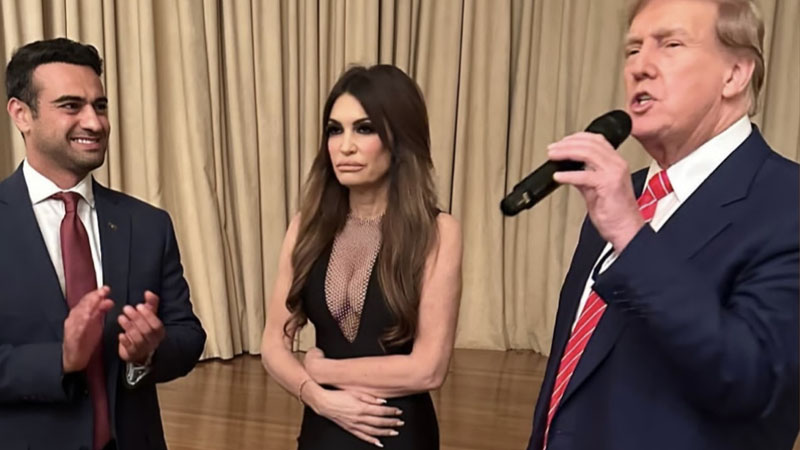Donald Trump Jr.’s fiancée Kimberly Guilfoyle launched a vehement attack on Vice President Kamala Harris during a stream on Thursday evening, questioning her qualifications and claiming her success is solely due to her race. Guilfoyle responded to a question from a Rumble viewer who asked, “What happened to democracy? No one voted for Kamala.”
“Yeah, no one voted for her,” Guilfoyle replied. “They handed and anointed her at the primary, which is very customary for her career. That’s what she’s done. Everything’s been handed to her, it’s a total layup. She hasn’t earned it.”
She continued her tirade, accusing the Democratic Party of sidelining President Joe Biden to promote Harris. “And now they just took over the Democratic Party, decided to just like leg-sweep Joe and put Kamala in and crown her heir apparent and say that now it’s time that we have a DEI, you know, person in for President of the United States and just make sure that she gets in because she’s a Black, Asian female. I mean, it’s outrageous.”
Guilfoyle’s comments come in the wake of President Biden stepping out of the race due to immense pressure from Democratic lawmakers and voters concerned about his fitness for another campaign and term in office. However, Harris’s elevation to his place was Biden‘s own decision, as he endorsed her mere minutes after stepping down. Harris has served in government for 20 years as a prosecutor, attorney general, U.S. senator, and vice president.
“DEI” stands for diversity, equity, and inclusion, a set of policies adopted by institutions and businesses to improve racial understanding and inclusivity. These policies are often incorrectly conflated with affirmative action and face claims—without evidence—that they exist to promote unqualified minorities over white people.
Guilfoyle’s remarks underscore the ongoing political tension and scrutiny surrounding Harris’s rise to prominence. Critics like Guilfoyle argue that her success is a product of identity politics rather than merit, while supporters highlight her extensive career and qualifications. As the political landscape continues to evolve, such debates are likely to persist, reflecting broader discussions about diversity and representation in American politics.

